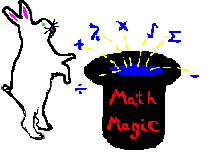

A. When a number in base 10 is divided by 9, you add up all the digits and find the remainder of the sum. The same applies for any base when it is divided by the base minus 1.
B. Examples:
Ex [1] 1432435 ÷ 4 has a remainder of _____
a. 1+4+3+2+4+3 = 17 which has a remainder of 1 when divided by 4.
b. The answer is 1.
c. Note: you do not have to add all the numbers. We know 4 is divisible by 4, so you can add 1+3+2+3 = 9.
Ex [2] 1737638 ÷ 7 has a remainder of ______
a. Ignoring 7, we get 1+3+6+3 = 13 which has a remainder of 6 when divided by 7.
b. The answer is 6.